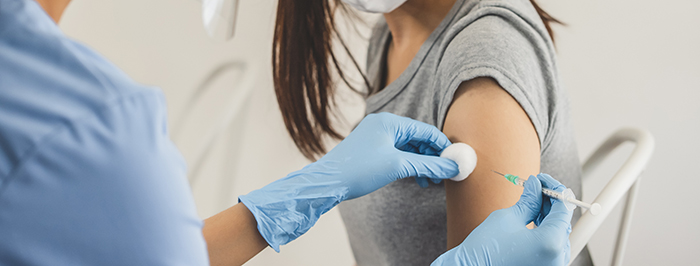Benefits & Me: Is AI a good Self-Diagnosis Tool?
Artificial intelligence (AI) has contributed to significant advances across many industries. Now, many people are using AI as a tool for selfdiagnosis or to get answers to health-related questions.

Self-diagnosis is a growing practice, as people’s primary access point for health care information has shifted from professionals to the internet.
Given the rising popularity of AI as a source of information for health-related questions, you may wonder if it’s a good resource for self-diagnosis and medical information.
Generative AI for Health Care
Generative AI is a type of technology that produces content such as text, images or audio. Common tools used for this purpose include OpenAI’s ChatGPT and Google’s Med-PaLM.
Amid a shortage of health care workers, chatbots like these could help answer your questions. Initial tests by researchers so far suggest these AI programs are more accurate than a standard Google search.
Pros of Using AI
Using AI tools for medical self-diagnosis can potentially reduce costs for patients and health care providers. Possible benefits of using generative AI include the following:
- Increased accessibility
- Improved health literacy
- More efficient triaging
- Preserved anonymity
These factors can enhance patient experience and improve engagement. Additionally, chatbots are easier to use than online symptom checkers.
Cons of Using AI
Although generative AI has the potential to help you with medical self-diagnosis, this technology has limitations and pitfalls, such as:
- The potential to provide false information
- The ease of misinterpreting information
- Ethical concerns (e.g., data privacy and bias)
- The risk of ignoring medical advice
Therefore, some chatbots have disclaimers that they should not be used to diagnose serious conditions, provide instructions for curing conditions or manage life-threatening issues.
Considerations for Using AI for Self-diagnosis
While generative AI tools may help you quickly answer health-related questions and self-diagnose conditions, solely relying on them for information or medical assistance could be unsafe.
However, these tools can be a useful resource to help you obtain accurate and timely health advice and information, as long as you understand their limitations.
Contact your doctor for the most accurate and personalized health care information and guidance.

Flu, COVID-19 and RSV Shots Available in Fall 2023
Health experts anticipate another surge of respiratory viral infections this fall, particularly from the flu, the virus that causes COVID-19, and respiratory syncytial virus (RSV). For the first time this fall, vaccines for all three viruses will be publically available.
Vaccinations reduce and prevent the spread of disease. They have been shown to reduce hospitalizations and death and may be particularly beneficial for those with compromised health.
Furthermore, experts have said that getting vaccines at the end of summer could help prevent the rise of respiratory illness when this risk heightens in the fall.
Who Should Get Vaccinated?
Health officials suggest that everyone eligible should receive at least the flu and COVID-19 shots this fall, following recommendations from the Centers for Disease Control and Prevention (CDC).
Individuals aged 65 and older are encouraged to consult their doctors about potentially receiving the RSV vaccine. Although there isn’t a vaccine for babies and young children, certain other RSV-preventive products are available for this demographic.
Who Should Get Another COVID-19 Shot?
The CDC recommends that all eligible individuals receive a COVID-19 shot this fall, even if they’ve already received the original vaccine. However, the CDC has yet to release full vaccination guidance since the latest manufactured versions of the COVID-19 vaccine are still awaiting federal authorization.
Can I Get All the Vaccines at Once?
Last fall, many individuals received the COVID-19 and flu shots at the same time. Health experts will continue reviewing cases and compiling data to uncover any potential safety concerns with receiving the vaccines simultaneously.
Current CDC guidance indicates that you can receive the RSV vaccination at the same time as your flu and COVID-19 vaccines. However, there is little data regarding the safety and efficacy of doing so. Consult with your primary care physician for important vaccination information before receiving your shots.
Learn More
The CDC is expected to release additional vaccine guidance after the latest COVID-19 shots gain federal authorization. Pay attention to the news in the coming weeks and speak to your doctor with any questions.
